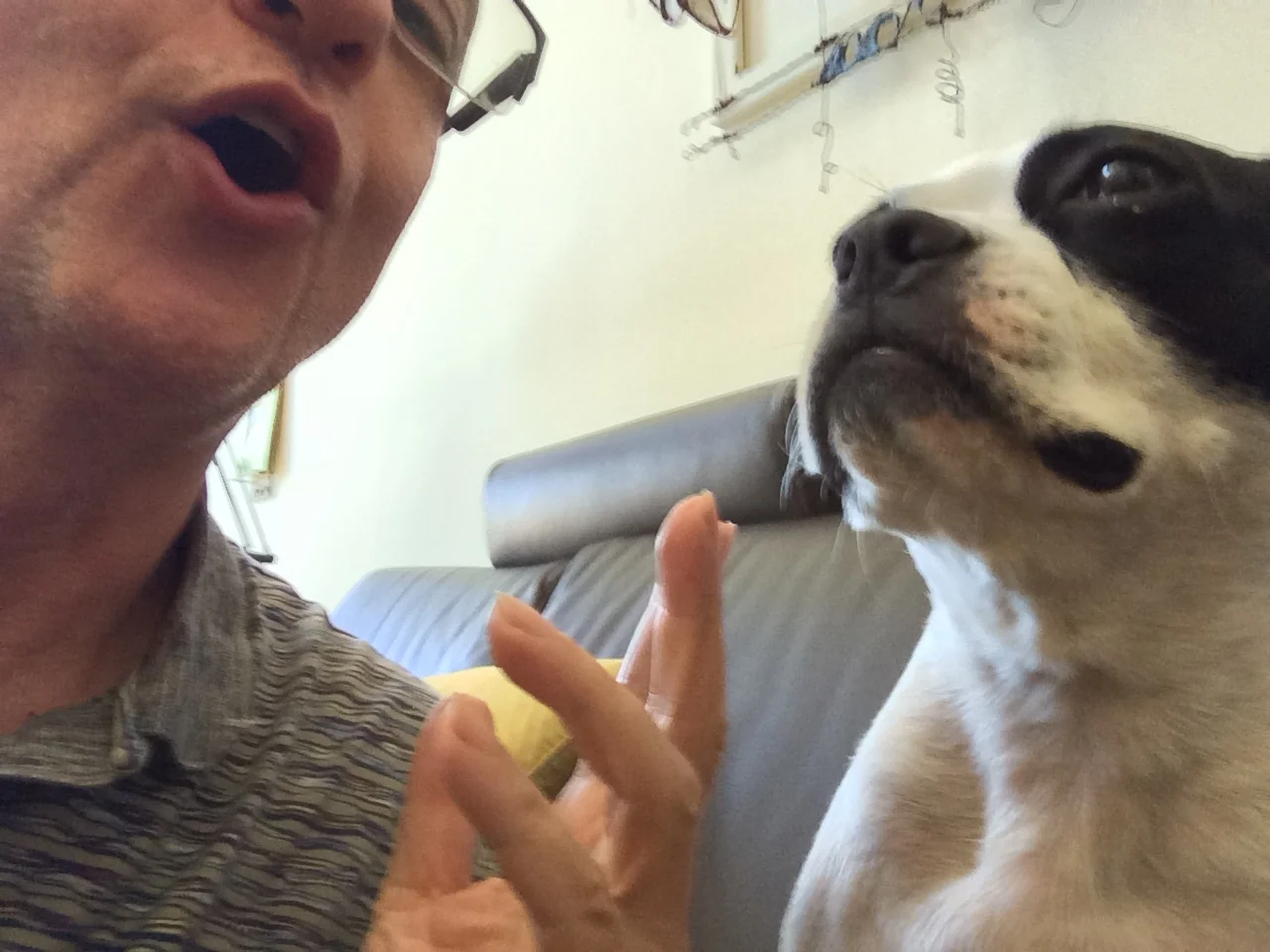My grandfather gave me a stuffed bunny when I was four. I named him “Fluffy.”
I talked to Fluffy a lot. Mostly, I told him how scary it was that mommy and daddy fought so much and that I was glad he was my friend.
Later, I began talking to the stray cats that took refuge in grandma’s cellar. I befriended the black crow that perched outside my bedroom window and asked him how to ask that 9th grade girl to the school dance.
Neither Fluffy nor my animal friends ever “talked” back. But I did get answers - more than I ever expected.
I knew that my animal friends - unlike Fluffy - were alive. They were present. They watched me as I spoke. They may not have understood English, but they heard me! I knew it - because they kept coming back to visit.
Today, when I’m not with colleagues or with friends, I speak to my wonderful wife . . . and our four-year-old Boston terrier, Lilly:
“Whose my little baby bird? Aw, woodgie, woodgie, woodgie!” Or,
“You’re such a love-bug! You’d make a great receptionist at work!”
I used to think I was crazy for talking to my pets. As it turns out I am. And so are those of you who talk to your squawking, swimming, slithering, slinking and slobbering family members.
Crazy like a fox!
Nicholas Epley, behavioral science professor at the University of Chicago, told Quartz, “Historically, anthropomorphizing has been treated as a sign of childishness or stupidity, but it’s actually a natural byproduct of the tendency that makes humans uniquely smart on this planet. No other species has this tendency.”
Our ability to anthropomorphize our pets stems from our tendency to find faces in everything, animate or not. So we’re not bonkers for seeing a clown face in the grille of a ’57 Chevy or the emoji for worry in a wall socket. No, we’re just part-time pareidoliacs. The only problem with seeing “eyes” in coffee makers or cargo pants is that we may begin to think that there’s actually a mind behind those “eyes” staring back at us!
On the other hand, animal companions really do have a mind behind those eyes - and a heart; they just don’t work like ours. And, thank goodness for that! A dog cannot fathom guilt; cats shimmy away from shame. Those priceless nuggets of the psyche are our creation.
Science may decree our intelligence for talking to our fur-babies. However, we are downright dumb - and irresponsible - when we assign human reasoning processes and human emotion to the actions of animals. Just look inside any shelter and you’ll find dozens of loyal creatures who were surrendered for tearing up their owners houses out of “spite.”
Free from our cumbersome baggage of complex emotions, our pets are able to “be” with themselves (and us) better than we could ever hope to be with each other. Pets don’t care about the content of our words; they only see the surrender in our eyes. Maybe that’s why some of us share secrets with our fur babies that we would never tell a lover - or a psychiatrist.
After all we do and say, our pets never leave us.
Understanding that puts us one step closer to never leaving ourselves.

